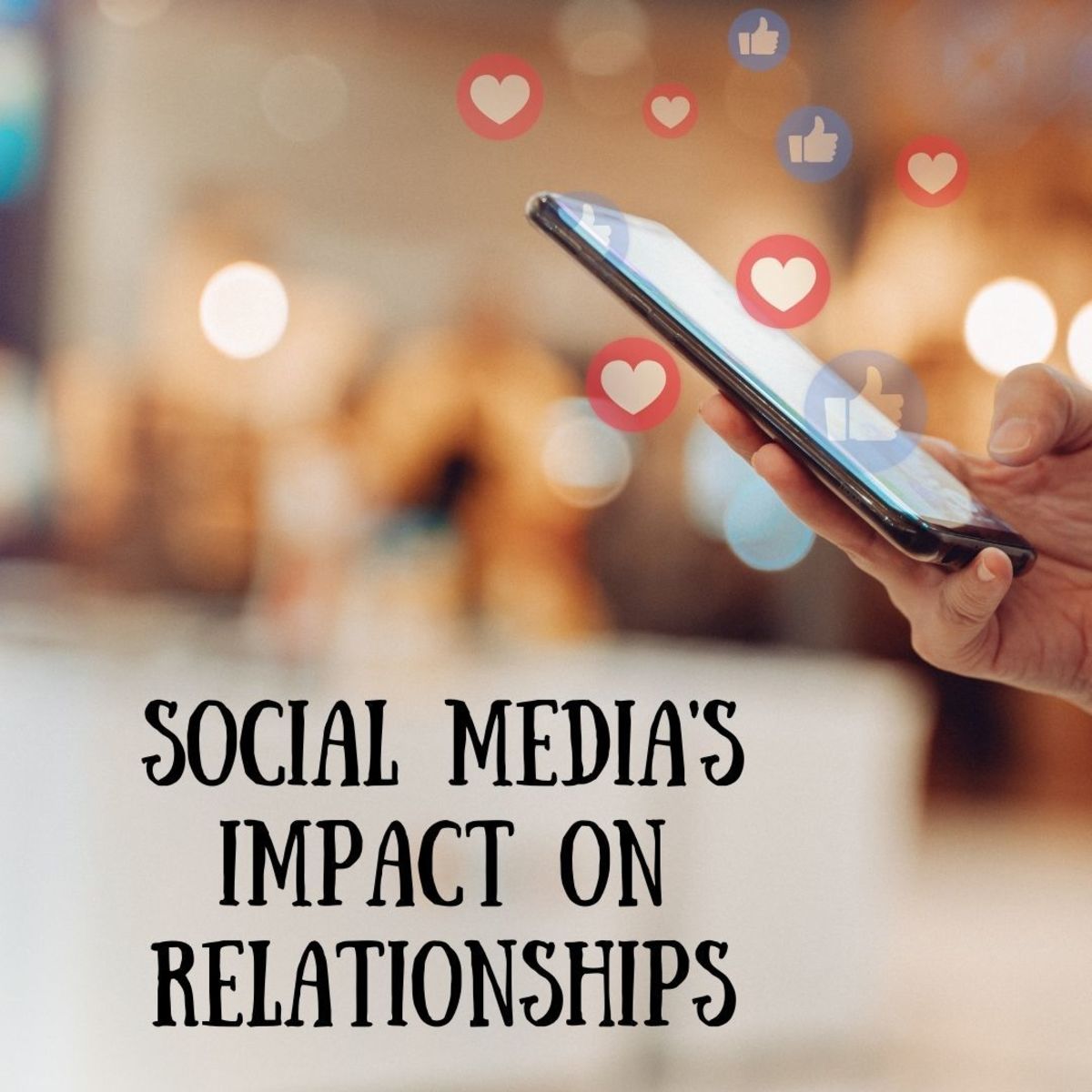Introduction: When Love Meets the Digital World
Once upon a time, dating meant handwritten letters, landline calls, and waiting nervously for the next meet-up. Today, love is just a click away. A swipe on Tinder, a like on Instagram, or a DM on Twitter can spark connections that turn into lasting relationships—or heartbreaks.
Social media has become the new playground for romance, reshaping how people meet, connect, and even break up. While it offers opportunities to find love across borders, it also introduces unique challenges. Jealousy, comparison, and the pressure to perform online often test modern couples in ways past generations never experienced.
This post explores how social media affects modern dating and relationships—the positives, the negatives, and everything in between. Whether you’re single, dating, or in a long-term partnership, understanding this digital dynamic is key to protecting your heart and building healthier bonds.
The Positive Side: How Social Media Brings People Together
1. Breaking Boundaries
Social media makes it easier to meet people outside your immediate circle. Long-distance connections, intercultural relationships, and chance encounters that were once impossible now happen daily.
2. Building Confidence
Posting achievements, sharing stories, and engaging in communities boost self-confidence, making it easier for people to approach potential partners.
3. Relationship Maintenance
For couples, social media helps sustain intimacy by enabling instant communication, sharing milestones, and celebrating memories together. Posting about your partner can feel like a modern “love letter.”
According to Pew Research, nearly half of U.S. adults say online platforms have made finding partners easier. That’s proof of social media’s transformative role in modern dating.
The Negative Side: How Social Media Hurts Relationships
1. Comparison Culture
Scrolling through Instagram couples can leave you doubting your own relationship. Carefully curated highlight reels fuel insecurity and dissatisfaction.
2. Jealousy and Distrust
Likes, comments, or late-night messages from strangers can cause suspicion. Even innocent interactions may spiral into accusations.
3. The Temptation of Alternatives
Social media constantly exposes you to attractive strangers. The “grass is greener” effect makes commitment harder when temptation is just a tap away.
4. The “Soft Breakup”
Instead of honest conversations, some partners slowly disengage online—unfollowing, untagging, or ignoring stories—before breaking up officially.
Table: Social Media’s Double-Edged Impact on Relationships
| Positive Effect | Negative Effect |
|---|---|
| Easier to meet new people | Increases jealousy and insecurity |
| Boosts communication | Encourages comparison culture |
| Builds confidence | Creates constant temptation |
| Celebrates love publicly | Normalizes unhealthy breakup habits |
How Social Media Shapes Dating Behaviors
Online Validation
Many singles equate likes and comments with self-worth. A witty bio or filtered selfie becomes more important than real-world qualities.
Ghosting and Breadcrumbing
Because it’s easy to vanish online, ghosting (disappearing without explanation) has become normalized. Similarly, breadcrumbing—sending just enough attention to keep someone interested—is fueled by digital platforms.
Pressure to “Perform” Love
Couples often feel the need to prove their happiness by posting constantly. The pressure to “show off” can overshadow authentic intimacy.
The Role of Communication in the Digital Age
Open dialogue is the antidote to social media stress in relationships. Couples should discuss:
- What counts as acceptable online behavior.
- How much of the relationship should be shared publicly.
- Boundaries around following or interacting with ex-partners.
A study reported by Psychology Today found that couples who set clear social media boundaries tend to experience higher trust and satisfaction.
Tips for Singles Navigating Social Media Dating
- Be authentic: Use real photos and avoid misleading bios.
- Avoid over-reliance: Meet offline to assess real chemistry.
- Don’t chase validation: Likes are not a measure of your worth.
- Watch for patterns: Consistency in communication matters more than flashy posts.
Tips for Couples Managing Social Media Pressure
- Set boundaries: Decide together what’s private and what’s shareable.
- Check insecurities: Don’t jump to conclusions over likes or comments.
- Limit screen time: Make room for offline bonding.
- Celebrate in real life: Don’t rely on posts to define your relationship’s strength.
When Social Media Becomes Toxic
Social media starts as a fun tool for connection, but in relationships, it can quickly become a ticking time bomb. What begins as lighthearted scrolling, harmless likes, or casual posting can spiral into jealousy, obsession, and even emotional harm. The tricky part? Most people don’t notice the shift until it’s already affecting their trust, self-esteem, or happiness.
Recognizing when social media use crosses the line from healthy to toxic is the first step toward protecting both your relationship and your mental health.
Signs That Social Media Is Hurting Your Relationship
- Constant Fights About Online Activity
If every like, comment, or DM sparks a heated argument, something deeper is at play. Social media itself isn’t the villain—it’s the lack of trust or clarity between partners. - Obsession With Monitoring
Do you or your partner check each other’s “last seen,” story views, or likes obsessively? This kind of surveillance is draining and erodes intimacy. - Comparisons With Other Couples
When you constantly compare your relationship to Instagram-perfect couples, dissatisfaction grows. Remember, those posts are curated highlights, not the full story. - Emotional Neglect Offline
If scrolling, posting, or messaging takes priority over actual conversations with your partner, you’ve replaced intimacy with digital distraction. - Performative Love
Are you posting more about your relationship than actually living it? When validation from strangers matters more than private connection, the dynamic becomes unhealthy.
Real-Life Scenarios
- The “Like” Spiral: One partner likes a photo of an attractive coworker. The other notices, feels insecure, and an argument begins. Over time, these small triggers pile up, creating resentment.
- Public Breakups: Instead of addressing issues directly, one partner posts cryptic messages or unfollows the other, signaling trouble to the world before discussing it privately.
- Digital Cheating: Flirty comments, secret DMs, or inappropriate follows blur the line between harmless fun and betrayal. Even if no physical affair occurs, the emotional impact is real.
Why Toxic Patterns Develop
- Accessibility: Social media creates constant access to new people, fueling temptation.
- Validation Seeking: Likes and comments provide a dopamine hit, making people crave external approval.
- Unclear Boundaries: Many couples never define what’s acceptable online behavior, leaving room for misunderstanding.
- Fear of Missing Out (FOMO): Seeing others’ relationships appear “better” makes people restless or dissatisfied with their own.
The Mental Health Impact
When social media becomes toxic, the effects ripple far beyond the relationship itself. Individuals may experience:
- Heightened anxiety from constant monitoring.
- Decreased self-worth due to comparisons.
- Emotional burnout from repeated arguments.
- Distrust that lingers even when offline.
How to Reclaim Control
- Set Boundaries Together
Discuss what feels acceptable and what doesn’t. Is liking selfies of the other sex okay? What about staying connected with exes? Boundaries remove ambiguity. - Prioritize Offline Connection
Create “phone-free” times—during meals, dates, or bedtime—to rebuild intimacy without digital interference. - Avoid Public Conflicts
Don’t air grievances through posts, captions, or comments. Keep relationship struggles private to protect mutual respect. - Practice Digital Detoxes
Take breaks from apps together. Use that time to bond, travel, or simply enjoy offline peace. - Focus on Intent, Not Just Action
A like or follow may not mean betrayal, but if the intention is flirtation or secrecy, that’s the problem. Address intent honestly.
When to Seek Help
If social media fights escalate into constant suspicion, controlling behavior, or emotional manipulation, it may signal deeper relationship issues. At this stage, couples counseling or individual therapy can provide tools to reset trust and boundaries.
Key Takeaway
Social media becomes toxic when it shifts from being a tool for connection to a weapon for control, comparison, or distraction. The healthiest couples use it to celebrate love—not to replace it, test it, or perform it for others.
If scrolling makes you fight more than it makes you smile, it’s time to step back. Remember: your relationship should be lived in the real world, not just displayed on a digital stage.
Conclusion: Balance Is the Secret Ingredient
Social media isn’t inherently good or bad—it’s how you use it. For modern dating and relationships, it’s both a blessing and a challenge. It creates opportunities for connection but also tests trust, patience, and communication.
To thrive in love today, practice balance. Celebrate your partner online if you wish, but nurture the bond offline. Swipe if you want to meet someone new, but prioritize authenticity. When used with intention, social media can enrich your love life. When misused, it can erode it.
Love may look different in the digital age, but its foundation remains timeless: respect, trust, and genuine connection.





